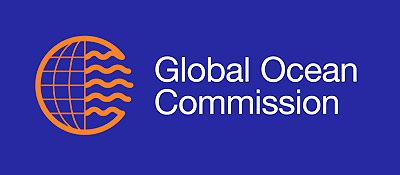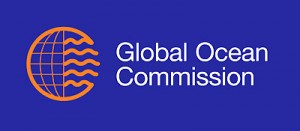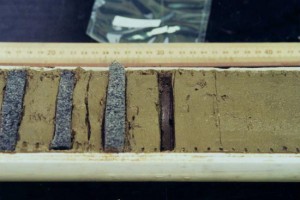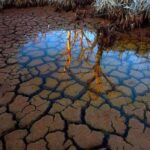June 24, 2014 – A report based on the analysis of marine scientists from around the globe urges governments to take action to address overfishing, ocean acidification, pollution and climate change or watch the oceans die. This comes one week after the release of analysis that shows how much the ocean is acting as a mitigator of atmospheric warming by absorbing 25% of the CO2 we humans are producing and acting as a major heat sink to keep the worst impacts of climate change in check.
The Commission is an independent body and includes political leaders, NGO chairs, scientists and academics from around the world. With the latest alarming findings it makes many recommendations. Among these are:
- banning bottom-trawling and other biodiversity destructive fishing practices,
- ending poaching and other unregulated commercial fishing practices,
- reforming governance of areas of the ocean designated as international waters,
- setting CO2 emission targets to address climate change and ocean acidification,
- promoting fish conservation through the creation of high seas regeneration zones to conserve wild stocks and habitat,
- setting plastic reduction targets on land to stop the flow of plastic garbage into the oceans,
- setting liability, safety and environmental policy related to deep sea and offshore oil and gas exploration,
- creating an ocean accountability board to monitor progress on achieving global results.
Although I see no reference to zoning the world’s oceans, an idea which I have written about and believe would help to begin the process of conservation and recovery, the commissioners have in their recommendations begun to address ways to better measure and protect vulnerable ecosystems and hold governments to account should they fail to meet sustainability goals.
But we still know so little about how our oceans play a role in impacting climate. We suspect they have an enormous impact but how and when? In a recent scientific study we have a new take on that relationship and its timing. Researchers from the University of Southampton, the National Oceanography Centre, and Australian National University, studying the past 5.3 million years have found that deep sea ocean cooling and continental ice volume cycles in the onset of the Ice Age didn’t coincide. The glaciers and sea ice that spread across North America, Eurasia and northward from Antarctica 2.15 million years ago as it turns out was preceded by ocean cooling 550,000 years ahead of the Ice Age onset.
How do we know? Researchers studied core sampling of ocean sediments, similar to those seen in the photograph below, looking at oxygen isotope ratios to calculate ancient water temperature. Sampling was done off the Straits of Gibraltar.
For the scientists participating in the study the discovery may have implications in our study of CO2 atmospheric concentrations and their subsequent impact on global temperatures and sea level changes. Right now scientists are discovering that the Deep Ocean is getting warmer, not colder as was discovered in the core samples dating back 5.3 million years. But that raises the question, could a similar time delay happen from the presence of increased CO2 in the atmosphere? Could that mean we may see the onset of extreme climate change delayed further into the future?
We continue to learn about the complexity of our Earth systems and sometimes find surprising outcomes in our investigations. The climate change lag discovered and reported in this latest research tells us just how much more we need to know about the balance between atmosphere, ocean and climate. It also tells us that we may face different results over the next millennia resulting from the lag observed between ocean and observed climate changes on land.























[…] Global Ocean Commission Tells Us What We Don’t Want to Hear https://www.21stcentech.com/global-ocean-commissions-latest-report-hear/ […]